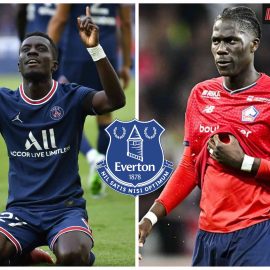The Oceania Football Confederation is the federation for the pacific islands located around Australia, though since 2006 it no longer contains the Aussies. Without them, the OFC is positively miniscule by comparison with the other federations.
The federation was formed in 1966 by the FAs of Australia, New Zealand, Fiji, Papua New Guinea and New Caledonia, however it wasn’t until 30 years later, in 1996, that it was confirmed as a fully-fledged confederation of FIFA and given a seat on it’s committee. In 1990 it was put on a probationary period of six years, where it was upgraded to a ‘geographical entity’ and then at the FIFA congress in Zurich, the confirmation of the new federation was accepted by a staggering majority of 170 for and just 1 against.
Plans to form the Oceania federation came into existence when the AFC rejected requests from Australia and New Zealand to be members, leaving the 2 nations with no ‘home’ in the scheme of FIFA. The acorn was planted in 1964 and they had 2 years to work on the blueprint, ready for the FIFA congress in 1966, where they were officially recognised as a federation, even though not on FIFA’s board.
The 1970s were a topsy turvy time for the new federation, with Australia departing to persue attempts to join the AFC and Chinese Tapei (Taiwan) going the other direction, leaving the AFC and joining the OFC, though in the late 80s they returned to the AFC.
There are 17 member nations in the OFC, largely made up of very small pacific islands where football isn’t the main sport. Australia as a country is around 10 times bigger than every other OFC nation put together, so they unsurprisingly dominated the federation and this led them to move to the AFC, in order to seek bigger challenges and to ‘give the others a chance’.
The president is Reynald Temarii from the French Polynesia of Tahiti, who also sits on the FIFA executive committee as a vice president. In his younger years, though he’s only 40 now, he played for Nantes in the French league and for his country (Tahiti) in a career that included a South Pacific Olympic Games gold medal.
Of the OFC’s 17 members, only 11 of them are members of FIFA, with Kiribati, Federated States of Micronesia, Niue, Northern Mariana Islands, Palau and Tuvalu not being eligible due to not reaching certain criterias FIFA sets, as these are very small islands with small football interest.
The OFC doesn’t get a full spot in the FIFA World Cup, but it is possible for a team from the federation to reach the finals via intercontinental play-off games. Since 1966 they have usually been awarded half a spot, which means that the winner of their competition plays a team, for example 5th placed in the CONMEBOL or AFC, and the winner goes through to the finals. For USA ’94 they only received a quarter of a spot, which means that the winner had to get through 2 qualification games.
As a result, there has only ever been 3 World Cups with OFC representatives in the finals; Australia twice and New Zealand once. 2006 saw Australia reach the 2nd round of the finals, but the other 2 occasions saw both Australia (at West Germany ’74) and New Zealand (at Spain ’82) fail to get past the 1st round of the finals.
With the Aussies now gone, the chances of the OFC being in the World Cup finals is significantly reduced, but the federation is growing all the time and is pushing more and more in recent years for better global recognition in the world of football, with new initiatives and better training and education of the game.
Competitions
Nations:
The OFC Nations Cup is the national competition in Oceania and has taken place 8 times with just 2 winners; New Zealand and Australia winning 4 each. From ’96 it was a two-yearly competition, taking place at various times in the year ranging from May to November.
In a previous incarnation as the Oceania Cup, this competition actually started in 1973, during a time when Australia were not part of the federation. The competition was held and won by New Zealand, but then it disappeared until 1980. In the second time of running Australia were back in the federation and won the competition, which was held in New Caledonia. In both instances Tahiti took home runners-up medals.
After 2 sporadic events, the competition then disappeared again, this time for 16 years, finally being reborn as the Oceania Nations Cup in 1996. This competition ran every 2 years until 2004, with Australia winning 3 times and New Zealand twice, then Australia parted company at the start of 2006, so were not involved when New Zealand won in 2008. It is seen by many to now be a one-horse race, as New Zealand is far bigger than the other nations.
The format of the competition changes almost every time it takes place but the 2008 style is believed to be an on-going system. New Zealand receive automatic qualification and then the team who win gold, silver and bronze at the South Pacific Games join them in a round-robin league. Each team plays each other home and away, so after 6 games each the team top of the league is the winner.
As well as being crowned OFC Nations Cup champions, they also qualify for the federation’s play-off play in the FIFA World Cup qualifiers.
Clubs:
The OFC Champions League (also known as the O-League) was won by an Australian team every time, prior to the Aussies leaving the OFC and has been won by a New Zealand side every time since.
The current format of the tournament is 2 groups of 3 teams that play each other home and away. The winner of each group plays a two-legged final to determine the champion.
Women’s Football
Much like in the men’s competitions, the OFC Women’s Championship is dominated by New Zealand and Australia, but was won twice by Chinese Taipei (Taiwan) during their time in the OFC.
The 2007 tournament saw 6 sides withdraw prior to the event, leaving 4 teams to battle it out in a league system; New Zealand, Papua New Guinea, Tonga and Solomon Islands. A hierarchy of Australia (now departed), New Zealand, then Papua New Guinea theoretically exists in this competition.
OFC Member Nations
American Samoa
Cook Islands
Fiji
Kiribati
Federated States of Micronesia
New Caledonia
New Zealand
Niue
Northern Mariana Islands
Palau
Papua New Guinea
Samoa
Solomon Islands
Tahiti
Tonga
Tuvalu
Vanuatu
Check out our guide to the best new betting sites. We review PayPal betting sites, 5 pound deposit betting sites, and more.
Add Sportslens to your Google News Feed!






